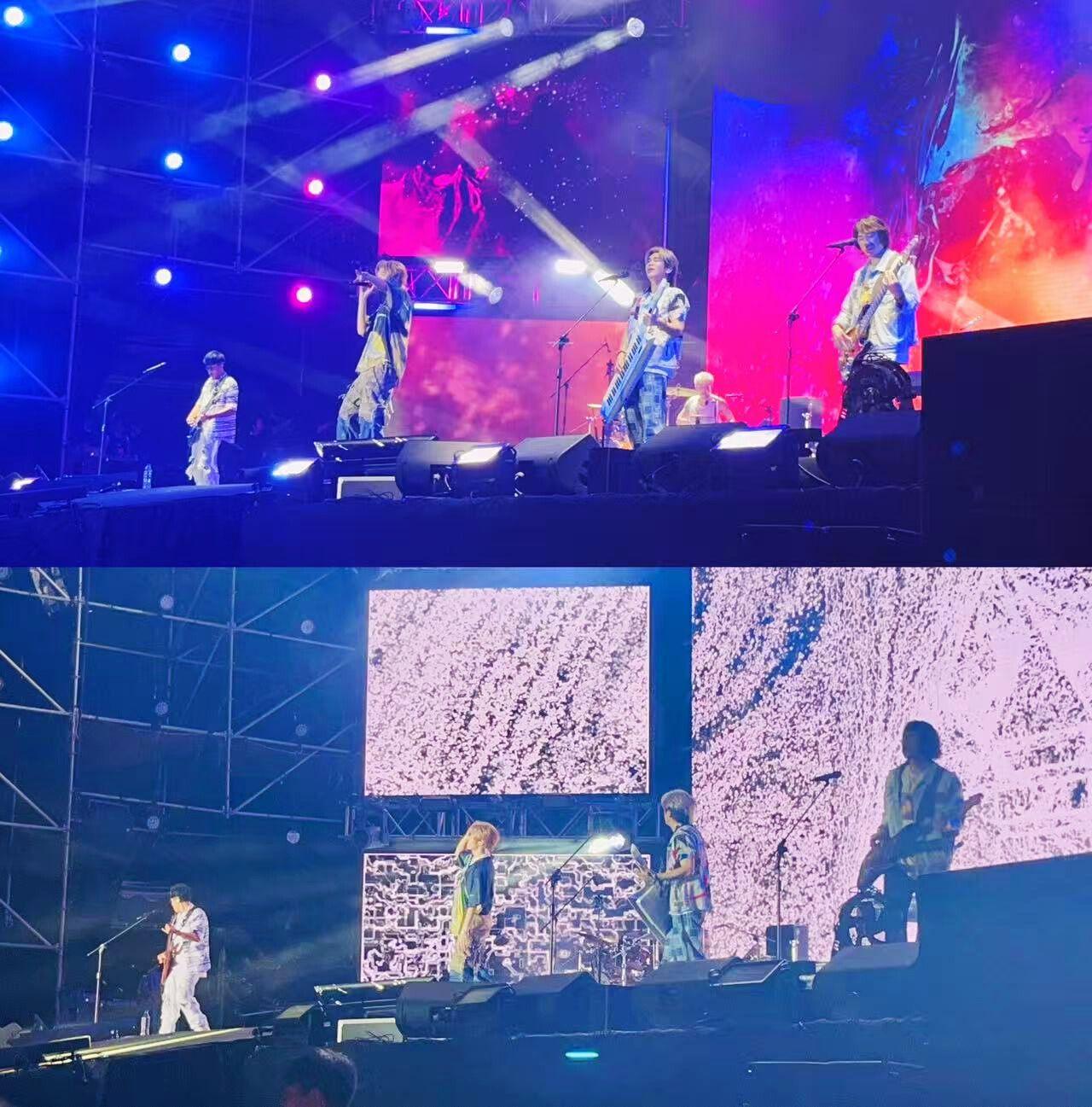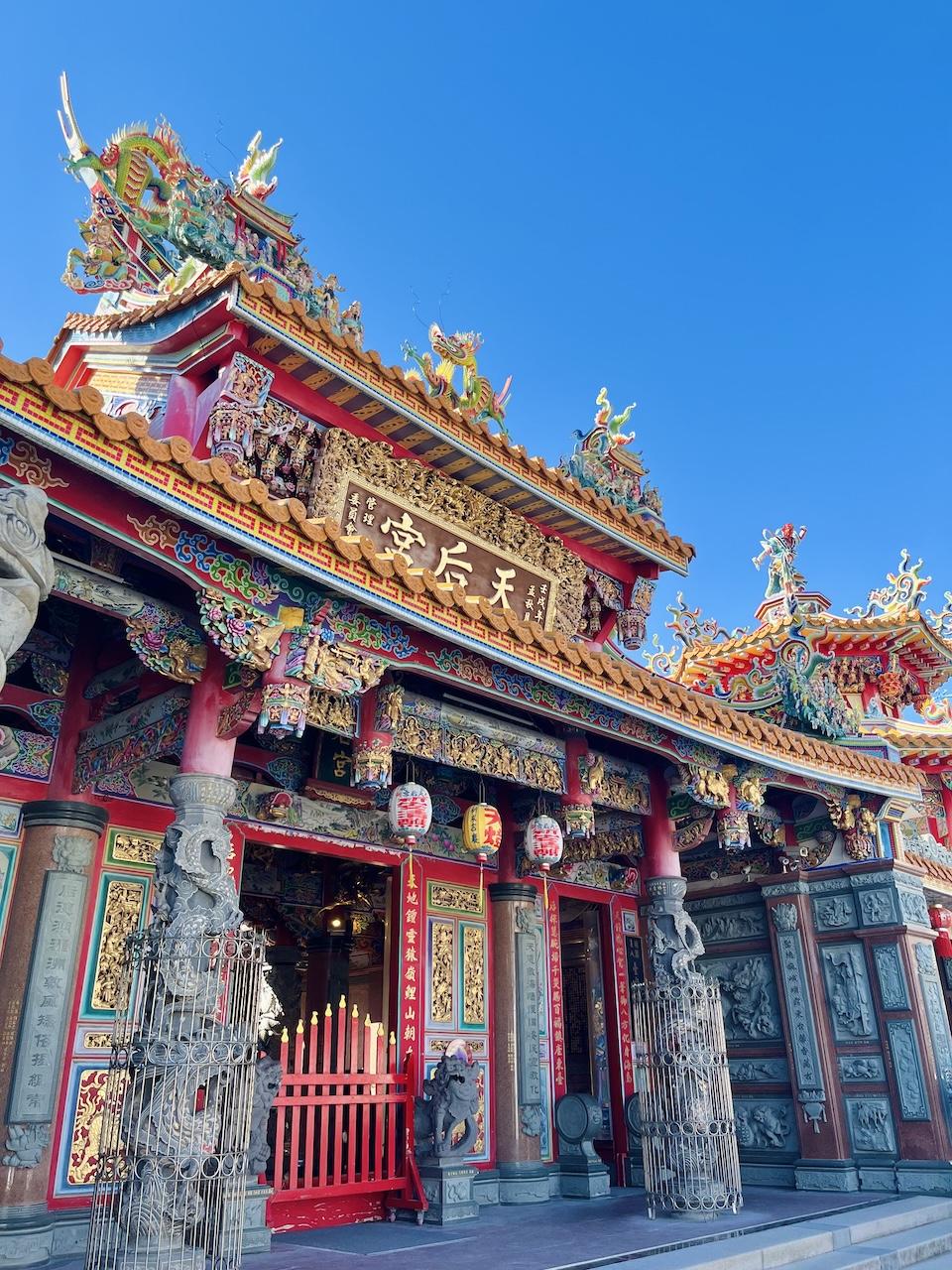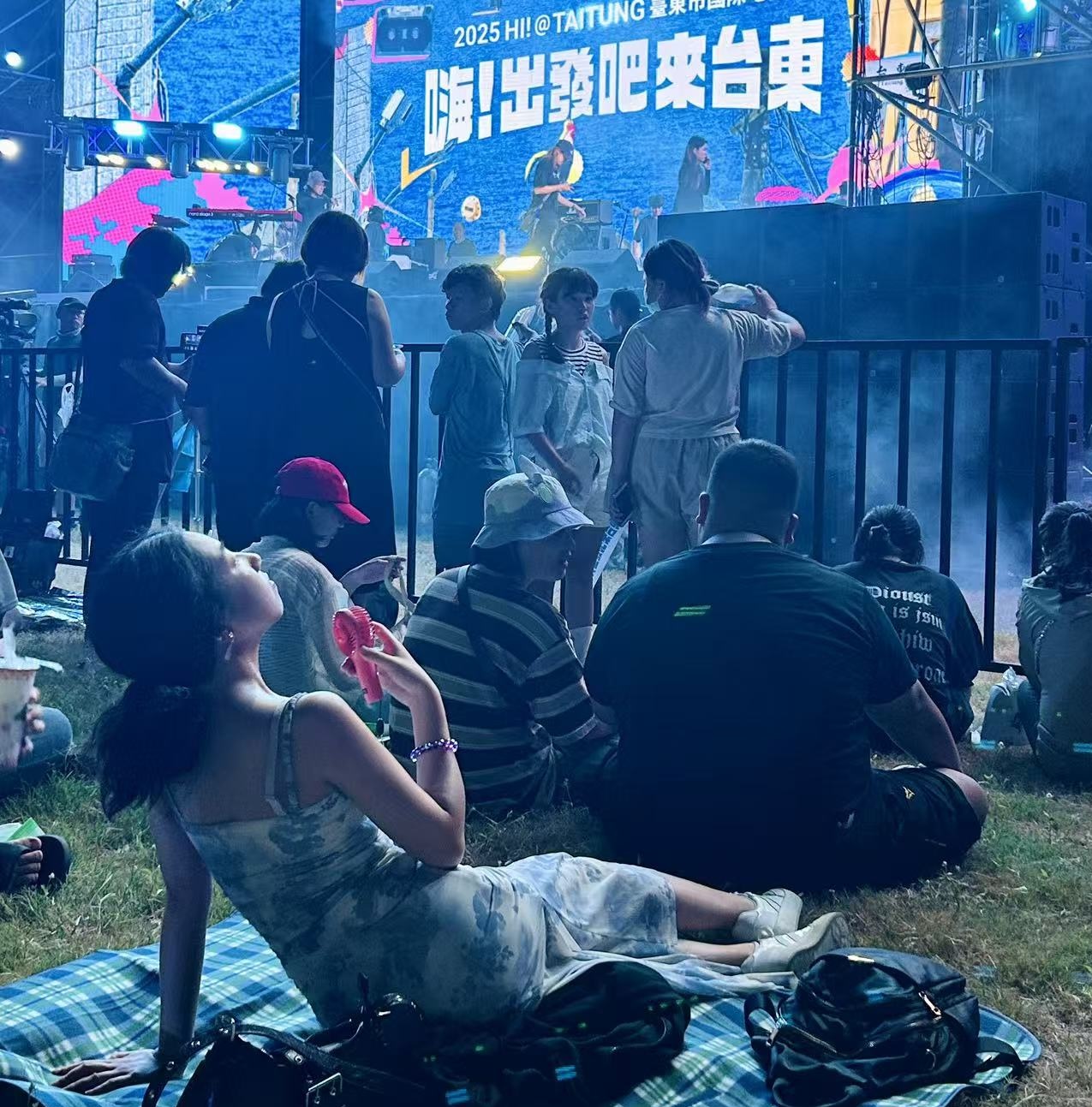“妹妹,要來打球嗎?” When I was enjoying the ocean waves alone at the Shanyuan Beach in Taitung, Taiwan, a group of locals invited me to play volleyball with them. This is the first month I am studying abroad for my GW Exchange program, and I find most Taiwanese chill, slow, and hospitable. When they are having a good time, they are more likely to share that moment with strangers. Even though all attempts to experience life abroad are encouraged, I myself strongly advocate studying the local language for a few years before taking the journey, which not only makes life easier, but also allows us to respond to local people in a way they understand and feel that their friendliness is heard.


My exchange university is located in Taipei, but I traveled to Taitung over a weekend in September to attend its annual music festival, which featured a Taiwanese Band I like called 831. It was part of a cast of a dozen notable artists, singing and jumping on a well lit stage built by the oceanside, surrounded by a hundred booths of local foods and drinks, and accompanied by a phenomenal light bridge fireworks show. It amazed me how I was able to get the barricades spot for free, probably due to Taitung having a smaller population than Taipei. This also suggests how smaller cities are putting effort into promoting their tourism, and in my humble observation, such ideas are supported by the general public.


Other than the two activities mentioned above, I also visited the Tianhou Temple. Tianhou, or Matzu, is a female deity worshiped by many Han Chinese that is said to protect people from natural disasters, particularly those brought by the sea. The temple I visited was only among many across the island, but I cherished its beauty and quietness. Following the instructions, I made some monetary donations, lit 7 incense sticks, bowed to Matzu and six other deities (that are in charge of different duties such as ensuring academic successes or granting romantic relationships), and took a bracelet from the front gate for good luck.

There are many temples in Taiwan, and different from the common religions we see in the United States, the deities that people here worship are very localized and fragmented. You don’t have to claim to be a ‘disciple’ to most, as long as you have a wish to be fulfilled, you can search if any temple is in charge of that, and just go. It is common for people to share with each other if they believe a temple ‘works’ the best or not, and I also noticed how there are numerous novels, manhuas, dramas and movies inspired by this culture. It is perhaps safe to say that most Taiwanese live a spiritual life, and it captivates me.

Personally, I believe living abroad carries the mission to try to understand a community as much as you understand the one you come from. May it be the positive side, or the negative side, may it be something you feel like should be promoted to the rest of the world, or something you really can’t find an explanation to why it exists. This September, I was able to make a small step toward the goal of this mission. I look forward to all the new discoveries that I will make for the rest of my exchange period.

Vallie Wu
Fall 2025
GW Exchange - National Chengchi University (Taipei)
Elliott School of International Affairs
International Affairs Major


